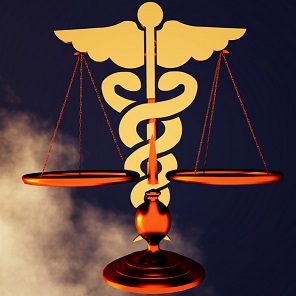 Written by Lucy Peters
Written by Lucy Peters
Up until the 1950s, living with a disability was considered incompatible with continued medical practice. Yet nearly 50% of Americans with visual impairments are still not in the labor force today, according to the Journal of Visual Impairment and Blindness. But with major advancements in medical technology, patient care has reached a point where physicians can now consult a patient and prescribe medications online, without the need for physical interaction. As a result, this helps professionals gain the advantage of erasing the stigma of individuals with visual disabilities and build their careers.
Physicians With Visual Impairment
There have been cases of doctors having a visual impairment and still managing to achieve their dreams of becoming certified physicians. One example is David Hartman, who was diagnosed with retinal detachment and glaucoma in childhood. Through perseverance, he graduated from medical school and became a board-certified psychiatrist. His work on the addiction recovery field was rewarded in 2019 at the National Conference on Addiction Disorders. Although he faced numerous difficulties in building his career, he developed certain programs for patients as the chief of adult outpatient psychiatry in Carillon Clinic in Virginia. His work has inspired movies and literature that proves that blindness and other disabilities cannot stop someone from building a promising career.
Different Paths In The Medical Field
There are numerous programs and specializations that can be accessed by individuals with visual impairment. If one decides to pursue a career in medicine, specializations in psychiatry and psychology are the most suitable due to a reliance on speech and understanding rather than a keen eye for physical symptoms and immediate action in emergencies. This is heavily advantageous for the physician, as the patient is not made aware of the disabilities they may have, prompting them to return and not be worried to seek counsel.
Understanding The Potential Risks
These are trying times for those with blindness or visual impairment who have frequently relied on the sense of touch. With the recent coronavirus compromising the sense of mobility and independence for many, those living with blindness are at a higher risk of infection. Healthcare employees must follow extra safety measures to protect against diseases, such as keeping your body and daily eye care items sanitized at all times.
Perseverance Is Key
Each step will be difficult when it comes to achieving your goals and dealing with visual impairment. But this shouldn’t discourage anyone from building a promising medical career. Having a stable support system and a workplace that is strictly against discrimination is also important in defining one’s career, as there will always be challenges for those living with a disability.
Vision loss can be extremely frustrating to come to terms with, but it does not make a person incapable of doing the same things as their non-visually impaired peers. Having a successful medical career while living with a visual impairment is always possible when you have the proper mindset to overcome any obstacles along the way.
Please also review AIHCP’s Health Care Life Coaching Program and see if it matches your academic and professional goals. The program in online and independent study and open to qualified professionals seeking a Health Care Life Coaching Program









 Written by Lucy Peters
Written by Lucy Peters